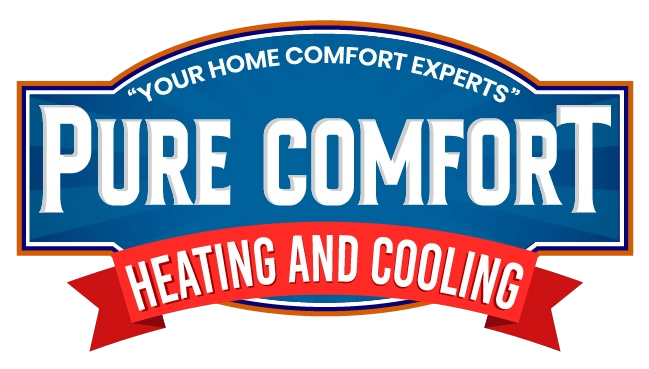
If you’re unsure whether your Streamwood home has bad indoor air quality (IAQ), it possibly does.
We are indoors a lot. In fact, we’re inside up to 90% of the time, according to the U.S. Environmental Protection Agency. And the air inside houses could be 2–5 times worse than outdoors, which might create long-term health concerns.
Most Common Causes of Bad IAQ
We’ve made a list of the most ordinary sources of poor IAQ, the problems they cause and how you can take care of these indoor air pollutants. If you’re concerned about the air inside your house, we suggest consulting with a professional like Pure Comfort Heating and Air Conditioning about which products are ideal for your family.
Volatile Organic Compounds
Volatile organic compounds, or VOCs, are chemicals released by regular household products.
They’re found in paint and stains as well as:
- Furniture
- Carpet
- Building materials
- Cleaning products
- Cosmetics
- Air fresheners
- Candles
When these chemicals accumulate indoors, they can irritate your eyes, nose and throat. They can also create headaches and nausea. Regardless of whether your house is in a rural or industrial space, an EPA study found indoor levels of these chemicals can be 2–5 times higher than the air outside.
Always follow the manufacturer’s instructions when applying paint or spraying cleaning products. Opening a window can help odors dissipate faster.
Air purification systems can also improve your air. This unit partners with your heating and cooling system to enhance indoor air. When seeking a model, ensure it’s specifically made to eradicate VOCs.
Dust and Pet Dander
Dust and pet dander can aggravate health problems like asthma and allergies, especially when it continuously gets moved by your home’s comfort unit. While you can vacuum more frequently and buy an improved air filter, an air filtration system may be a better match.
This solution hooks to your comfort equipment to give powerful filtration. Some models provide hospital-level filtration for removing particles and bioaerosols.
Persistent Odors
Newer residences are securely sealed to enhance energy efficiency. While this is fantastic for your energy expenses, it’s not so good for your IAQ.
Stuffy odors can stay around for a greater amount of time since your house is pulling in less fresh air. As keeping your windows open all the time isn’t a possibility, here are two methods you can make your indoor air smell better.
An air purification system is installed in your HVAC system to eliminate odors before they get released again. Find one with a carbon filter and the power to wipe out harmful VOCs. These units can also help keep your household healthy by getting rid of most bacteria and ordinary allergy triggers like pollen and mold spores.
A ventilation system takes out stale indoor air and substitutes it with crisp outdoor air. There are two models of equipment (heat recovery and energy recovery), so check with our professionals for more info on which kind is best for your home.
Unbalanced Humidity
It’s critical your house’s humidity keeps even. Air that’s too moist can lead to mold, while dry air can lead to respiratory symptoms.
Our technicians suggest 40–50% for ideal comfort. To keep yours steady, think over getting a whole-home humidifier or whole-home dehumidifier with your comfort equipment.
Instead of having to lug a humidifier from room to room, this solution delivers even humidity across your house.
Carbon Monoxide
Carbon monoxide is colorless gas you can’t smell. It’s caused by insufficient combustion in fuel-burning equipment, like gas heating systems, water heaters or fireplaces.
It poses an extreme health risk. In low levels, it can cause flu-like ailments like headaches and nausea. It may be lethal in heavy concentrations.
We recommend regular furnace maintenance to make sure your equipment is operating properly. This work allows our professionals to pinpoint issues before they start, including malfunctions that can cause carbon monoxide leaks.
The best way to keep your residence free of carbon monoxide is to put in detectors. These alarms should be on every floor close to bedrooms and living rooms.
Improve Your Home’s Air Quality with the Pure Comfort Heating and Air Conditioning Specialists
Informed that your residence has bad air quality but not sure how to improve it? Or unsure which solution is a good fit for you? Give our kind HVAC experts a call at 630-948-4591 or contact us online right away. With free estimates and expert assistance, we’ll help you locate the ideal equipment for your needs and budget.

